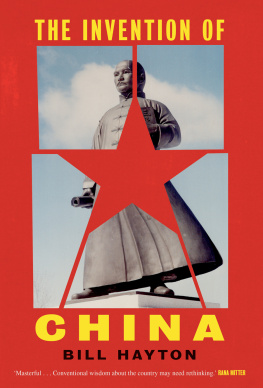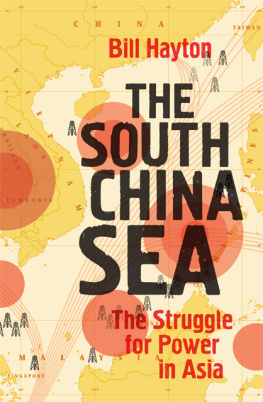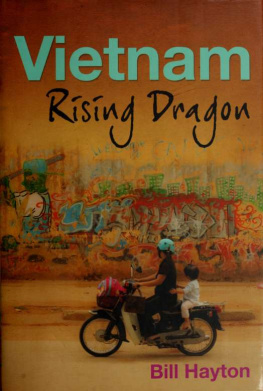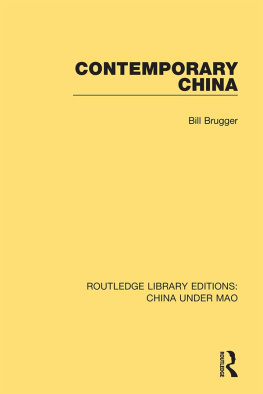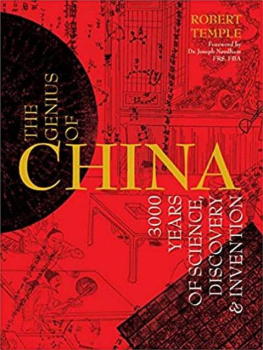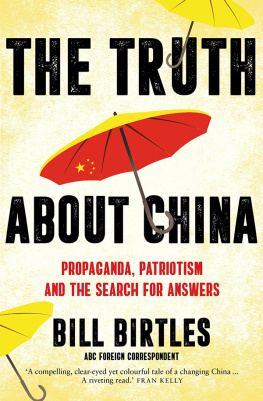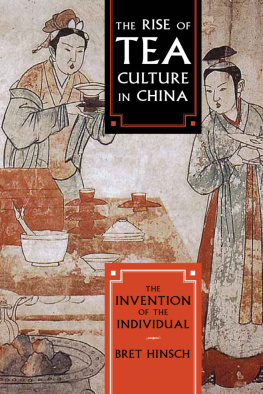Bill Hayton - The Invention of China
Here you can read online Bill Hayton - The Invention of China full text of the book (entire story) in english for free. Download pdf and epub, get meaning, cover and reviews about this ebook. publisher: Yale University Press, genre: Romance novel. Description of the work, (preface) as well as reviews are available. Best literature library LitArk.com created for fans of good reading and offers a wide selection of genres:
Romance novel
Science fiction
Adventure
Detective
Science
History
Home and family
Prose
Art
Politics
Computer
Non-fiction
Religion
Business
Children
Humor
Choose a favorite category and find really read worthwhile books. Enjoy immersion in the world of imagination, feel the emotions of the characters or learn something new for yourself, make an fascinating discovery.
- Book:The Invention of China
- Author:
- Publisher:Yale University Press
- Genre:
- Rating:4 / 5
- Favourites:Add to favourites
- Your mark:
- 80
- 1
- 2
- 3
- 4
- 5
The Invention of China: summary, description and annotation
We offer to read an annotation, description, summary or preface (depends on what the author of the book "The Invention of China" wrote himself). If you haven't found the necessary information about the book — write in the comments, we will try to find it.
The Invention of China — read online for free the complete book (whole text) full work
Below is the text of the book, divided by pages. System saving the place of the last page read, allows you to conveniently read the book "The Invention of China" online for free, without having to search again every time where you left off. Put a bookmark, and you can go to the page where you finished reading at any time.
Font size:
Interval:
Bookmark:
THE INVENTION OF CHINA

Copyright 2020 Bill Hayton
All rights reserved. This book may not be reproduced in whole or in part, in any form (beyond that copying permitted by Sections 107 and 108 of the U.S. Copyright Law and except by reviewers for the public press) without written permission from the publishers.
For information about this and other Yale University Press publications, please contact:
U.S. Office:
Europe Office:
Set in Adobe Garamond Pro by IDSUK (DataConnection) Ltd
Printed in Great Britain by Gomer Press Ltd, Llandysul, Ceredigion, Wales
Library of Congress Control Number: 2020937932
ISBN 978-0-300-23482-4
A catalogue record for this book is available from the British Library.
10 9 8 7 6 5 4 3 2 1
For my parents givers and doers. Thank you for everything.
CONTENTS
ILLUSTRATIONS
PLATES
).
MAPS
ACKNOWLEDGEMENTS
Xiexie Thank you
This book began in the bar of the Omni New Haven Hotel and a conversation with Bradley Camp Davis of Eastern Connecticut State University. Over a couple of bottles of Newcastle Brown Ale we discussed the vexed history of the Vietnamese borderlands. At one point, Bradley replied to one of my naive questions about nineteenth-century frontiers with the line, It depends what you mean by China. It was a head-spinning moment. After several years of thinking, dithering, researching and writing, this book is the result of that conversation. I hope you will find my attempt to understand what you mean by China as fascinating as I did.
None of what follows would have been possible without the library of the School of Oriental and African Studies in London: for me a portal to a new plane of consciousness. My thanks to all who labour there. As I took my first nervous steps into this intellectual world I was greatly encouraged by my discussions with participants at a conference organised by Kreddha at the University of California, Davis in September 2016. There I met Michael van Walt van Praag, Miek Boltjes, the late Arif Dirlik of the University of Oregon and Timothy Brook of the University of British Columbia who were all generously supportive of my ambitions.
They were only the first in a long line of academics who answered further naive questions. In particular I would like to thank: Tim Barrett of SOAS; Chad Berry of the University of Alabama; May Bo Ching of the City University of Hong Kong; Chris P.C. Chung of the University of Toronto; Pamela Kyle Crossley of Dartmouth College; Stephen Davies of the University of Hong Kong; Frank Diktter of the University of Hong Kong; Josh Fogel of York University; Ge Zhaoguang of Fudan University; Michael Gibbs Hill of the College of William and Mary; Tze-ki Hon of the City University of Hong Kong; Chris Hughes of the London School of Economics; Bruce Jacobs of Monash University; Thomas Jansen of the University of Wales Trinity Saint David; Elisabeth Kaske of Leipzig University; Cheng-Chwee Kuik of the National University of Malaysia; Jane Leung Larson of the Baohuanghui Scholarship forum; James Leibold of La Trobe University; Victor Mair of the University of Pennsylvania; Melissa Mouat of the University of Cambridge; Peter Perdue of Yale University; Edward Rhoads of the University of Texas at Austin; Julia Schneider of University College Cork; Rich Smith of Rice University; Rachel Wallner of Northwestern University; Jeff Wasserstrom of the University of California, Irvine; and Peter Zarrow of the University of Connecticut.
George Yin of Swarthmore College was a great source of advice on my many questions of translation and etymology. Geoff Wade put me right on things Ming. Evan Fowler and Trey Menefee advised me on the Hong Kong section; Erik Slavin walked me around Yokohama and Jeremiah Jenne was a huge help in Beijing. Paul Evans, Brian Job and Yves Tiberghien of the University of British Columbia hosted and helped in Vancouver. Timothy Richards great-granddaughter Jennifer Peles and his biographer, the late Eunice Johnson, helped with my research into the missionary-educators life and work.
My thanks to all at Yale University Press, especially Heather McCallum for taking a risk with this book; Marika Lysandrou who shepherded me through the writing; Clarissa Sutherland and Percie Edgeler who managed the production process; and Charlotte Chapman for her rigorous copy-editing. Three anonymous referees provided extremely helpful comments on the manuscript, thank you.
My BBC colleagues tolerated my late-night research and my family granted me permission to travel. My wife, Pamela Cox, is a proper historian and showed me how to be one. My love to her. Our children, Tess and Patrick, provided encouragement and happiness. Thank you; you can have the kitchen table back now.
Colchester, March 2020

1. The Contemporary Peoples Republic of China

2. South China Sea
INTRODUCTION
What kind of country is China going to become? We know it will be huge in population and, if present trends continue, economically strong and militarily powerful. But how will this superpower behave? How will it treat its own people, its neighbours and the rest of the world? China is one of two countries with populations greater than a billion, massive armed forces, nuclear weapons and volatile border disputes. But whereas few see India as a threat to international stability, China dominates the thoughts of policy-makers, analysts and commentators. There is something different about China. While plenty regard its rise as an opportunity for trade, investment, profit and development few do so without reservations. What kind of country is China? What kind of world will it make?
There is a lazy answer to this question, one that has become catechism for the Communist Party of China and many commentators. It is to simply invoke the century of national humiliation. On 18 October 2017, Xi Jinping stood before a giant hammer and sickle at the nineteenth Congress of the Communist Party of China and summarised this catechism in a paragraph. With a history of more than 5,000 years, our nation created a splendid civilisation, made remarkable contributions to mankind, and became one of the worlds great nations, he told his audience.
But with the Opium War of 1840, China was plunged into the darkness of domestic turmoil and foreign aggression; its people, ravaged by war, saw their homeland torn apart and lived in poverty and despair. With tenacity and heroism, countless dedicated patriots fought, pressed ahead against the odds, and tried every possible means to seek the nations salvation. But
This is a curious vision of the past. It is founded upon the idea that, for a century, the Chinese people were hapless victims of foreign aggression, and played little part in their own destiny. It is easy to see why an authoritarian political party would find it useful. By robbing the Chinese people of their agency, it avoids having to ask or answer difficult questions about how change came about. As a result, Xis version of history is the one taught in Chinese schools, and also one that many people outside China have come to accept. Yet almost every aspect of it has been challenged by recent research. Unfortunately, the insights unlocked by this research are not part of the mainstream conversation about China: they languish in libraries and specialist academic seminars. In this book I will try to bring them out into the open. I will show how Xi Jinpings view of China is not some timeless expression of Chineseness dating back to ancient times but a modern invention. Modern Chinas ethnic identity, its boundaries and even the idea of a nation-state are all innovations from the late nineteenth and early twentieth centuries.
Next pageFont size:
Interval:
Bookmark:
Similar books «The Invention of China»
Look at similar books to The Invention of China. We have selected literature similar in name and meaning in the hope of providing readers with more options to find new, interesting, not yet read works.
Discussion, reviews of the book The Invention of China and just readers' own opinions. Leave your comments, write what you think about the work, its meaning or the main characters. Specify what exactly you liked and what you didn't like, and why you think so.

